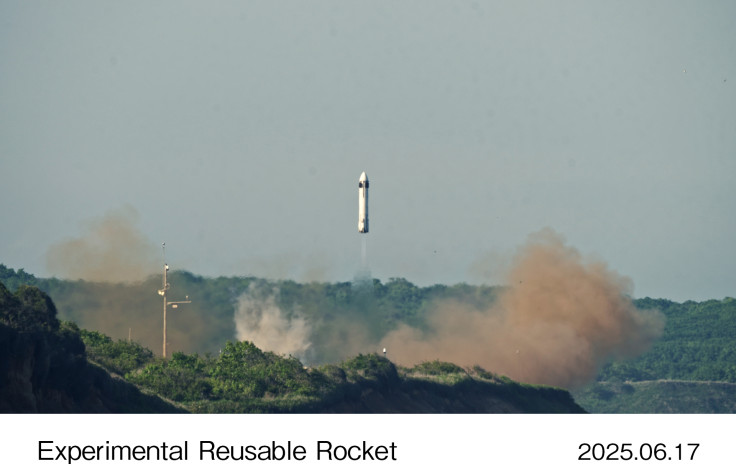Honda is SpaceX's New Competitor as Automotive Giant Successfully Launches Reusable Rocket
Honda plans to have its suborbital launch by 2029.

SpaceX has long dominated the commercial space industry—but it may soon face a formidable rival. Japanese automotive giant Honda has successfully completed its first reusable rocket launch, marking a significant step in its expansion into the space sector.
Honda's First Reusable Rocket Launch Successful
On Tuesday 17 June 2025, Honda officially announced the successful launch and landing of its experimental reusable launch vehicle (RLV). Honda Motor Co., Ltd. said the mission was carried out by its research and development arm, Honda R&D Co., Ltd., in the northern Japanese island of Hokkaido.
The carmaker first revealed its interest in space in 2021, stating it was exploring reusable rockets and related technologies. Since then, Honda remained relatively quiet on its space ambitions—until the RLV test this week.
'The test was completed successfully—the first time Honda landed a rocket after reaching an altitude of nearly 300 metres,' said the company in its official press release.
Japan's second-largest automaker added: 'This test marked the first launch and landing test conducted by Honda with an aim to demonstrate key technologies essential for rocket reusability.'
These key technologies include flight stability during both ascent and descent, as well as precise landing capabilities. Honda confirmed that the launch met all performance goals. The rocket reached an altitude of 271.4 metres and landed just 37 centimetres from the target site, completing the flight in 56.6 seconds.
Honda Still Far From Matching SpaceX
While Honda's achievement is promising, it still has a long road ahead to catch up with Elon Musk's SpaceX. The US aerospace firm has completed more than 500 missions and deployed thousands of Starlink satellites, according to PCMag.
Honda, however, is steadily increasing its space industry presence through R&D initiatives. The company has developed and distributed robotic technologies used in space, and is now advancing its rocket development programme. It said its space ambitions are driven by a belief in contributing meaningfully to people's daily lives.
Honda also noted it sees potential in using its own rockets to launch satellites and provide other space-related services that align with its broader business operations.
Honda Targets 2029 for Suborbital Launch
Honda Global CEO Toshihiro Mibe hailed the rocket test as a breakthrough moment. 'We will continue to take on new challenges—not only to offer our customers various services and value through our products, while addressing environmental and safety issues, but also to continue creating new value,' he said.
Following this successful demonstration, Honda confirmed that it will accelerate its research and technology development efforts. The company aims to conduct a suborbital launch by 2029.
© Copyright IBTimes 2025. All rights reserved.





















